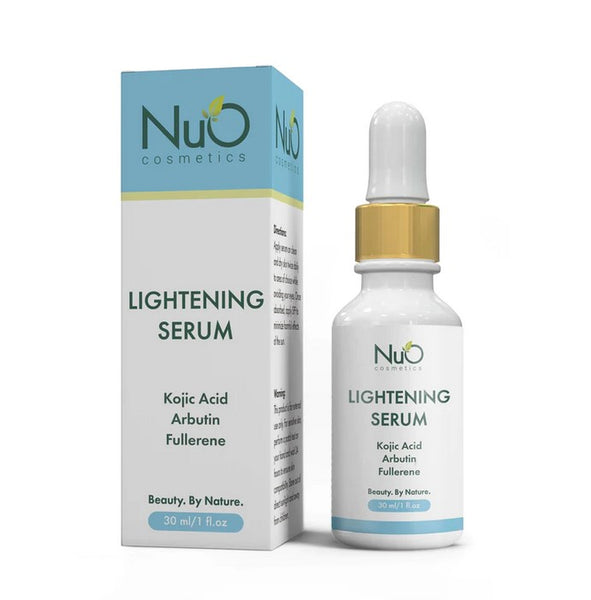There are thousands of different skincare companies out there, each promising their own unique products that claim to alleviate every skincare concern imaginable. But what about their ingredients? Where are they sourced from? Better yet, WHO are they sourced from?
So many mainstream skincare brands source from animal-derived ingredients, whether it be milk, honey, collagen, or even tricky chemical names designed to hide the truth of the ingredient. Today, we’ll cover the top ways to figure out whether or not a brand actually uses cruelty-free and vegan products.

This advice goes for all beauty brands in general, not just skincare!
Where is the Product Being Sold?
China is the only country in the world that requires companies to test on animals in order for the product to be sold in the Chinese market. The government set this up to ensure the safety of makeup, skincare, pharmaceuticals, etc., being sold in the country. However, this is also one of the deadliest marketplaces for animals like beagles, rabbits, and even monkeys that are forced to live out their torturous lives in laboratories where potentially toxic chemicals are fed or rubbed onto them.
Unfortunately, practically every conventional beauty brand sells in China. Large, multinational corporations that are most concerned with profits typically sell their products to the vast Chinese beauty market.
The worst part is that many companies market their products as being “cruelty-free” in the United States, the UK, and other countries since the products being sold in the Southeast Asian country are significantly different from the products being sold in the Western market.
The fastest way to debunk whether or not a company sells its products in China is to do a simple Google search: “does *brand name* sell their products in China?”
If the corporation is so big that it owns other companies, be sure to look those up, too.
One thing to keep in mind is that products can be manufactured in China without being tested on animals. China has a lax manufacturing policy and doesn’t require animal testing on beauty products that are made there but sold elsewhere, so don’t automatically be turned away by a “made in China” label.
Check the Packaging
If you’re walking through the store and see a great sale going on with only a few pieces left on the shelves, you likely don’t have time to pull out your phone and dive into the internet to see whether or not the brand sells in China. The second best way is to simply read the packaging!
If you don’t see a cruelty-free bunny or a few leaves that say ‘vegan,’ it likely is not. Think about it: if a brand truly is vegan and/or cruelty-free, why wouldn’t they advertise it?
Always be wary of the overall color scheme and name of the brand, too. Many products have green-colored packaging that gives the impression of being sustainable, cruelty-free, and vegan or brand names that suggest the ingredients are natural. However, this is often just a marketing ploy to get more people who are concerned with preserving the environment and its inhabitants to buy their products.
Always check the brand listed on the packaging. If it’s a beauty industry giant or one of their subsidiaries, they likely are not cruelty-free.
Read the Ingredient List
This method takes a bit of time, but it is the most truthful method of checking whether or not a specific product is vegan. If it’s vegan, it’s likely cruelty-free, but not necessarily, so you should combine this method with a quick Google search.
Here are the most common chemical names for animal-derived ingredients:
- Lanolin: comes from sheep wool and is most commonly found in lip balms.
- Shellac: hundreds of thousands of lac bugs are ground up for tiny amounts of this ingredient which is found in nail polishes.
- Non-vegetable glycerin: is derived from animal fat and is typically used in soaps, makeup, and moisturizers.
- Non-vegan squalene: has vast anti-aging properties but is made from shark liver oil.
- Carmine/natural red 4/E120/CI 75470: tiny, red beetles that have a deep red color when ground up. Usually used in foods, lipsticks, and other red-colored beauty products.
- Keratin: made from the hair and/or horns of animals. Used in hair strengthening products.
- Elastin: is derived from the ligaments, aortas, or muscles of animals and helps to increase collagen production in skin care products.
- Collagen: found in most anti-aging skincare products. It’s derived from the skin, ligaments, or bones of a variety of animals.
If you see any of these ingredients, there should be alarm bells going off in your head. There are a few vegan alternatives for a couple of the above, but if it doesn’t specifically say “vegan” on the packaging, you can be 99% certain that it’s an animal-derived ingredient.
Support Smaller Businesses
Smaller businesses have a greater likelihood of sourcing local, vegan, and cruelty-free ingredients than multinational corporations. You don’t have to buy from a brand that makes their products in somebody’s garage (unless you want to), but family-owned or online stores with a smaller market presence are a great place to start.
NuOrganic: a Brand You Can Trust
Here at NuOrganic, we don’t sacrifice animals for high-quality products. Our skincare lines are specially designed by trained physicians that believe skincare and nature are one and the same. Whether you’re looking to act more sustainably or are currently a vegan, you can use our products with certainty that you’re not supporting the cruel animal testing market.
We use vegan active ingredients that nurture rather than suppress your skin’s natural ability to repair itself, not to mention that our products are full of organic ingredients; pesticides are terrible for your skin!
Check out our homepage or our full skincare catalog, where you can sort affordable products by skin concern or type of treatment. We look forward to helping you achieve your skin goals!

